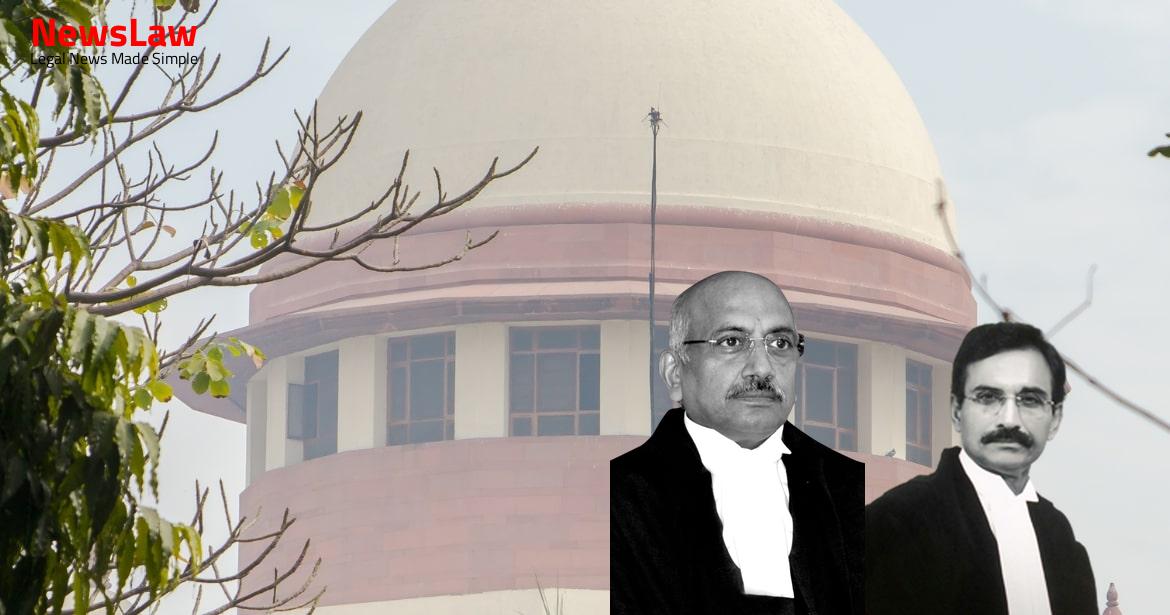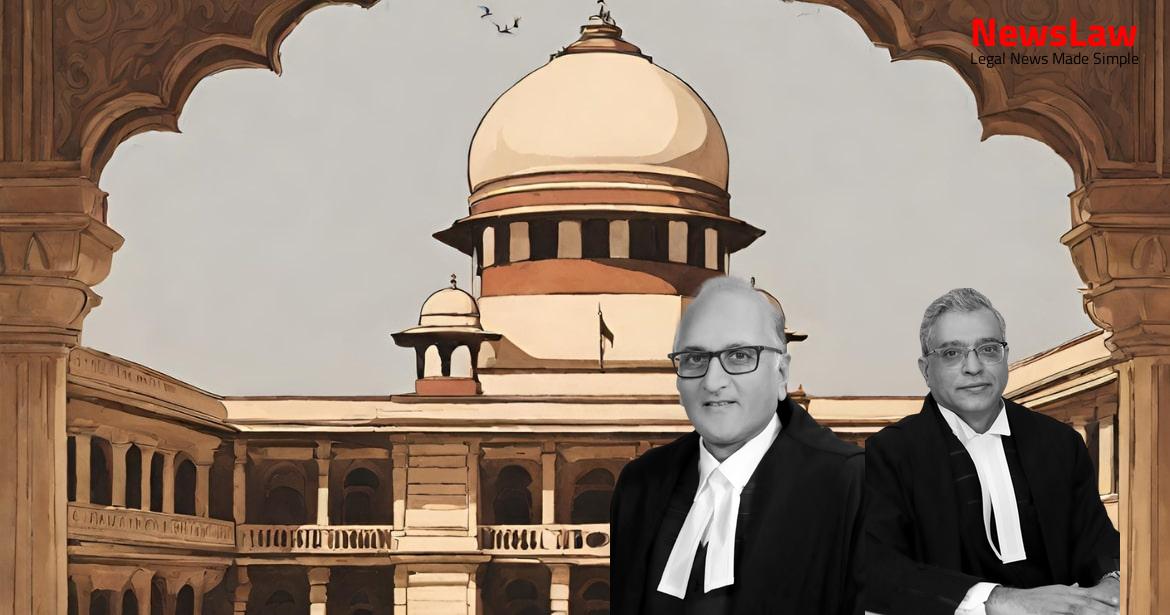In a significant ruling, the Supreme Court of India addressed the presumption of disease attribution in military service in the case of Veer Pal Singh. The case delves into the complex issue of attributing disabilities to military service and sets a precedent for future similar cases. Stay informed about this crucial legal decision that impacts the welfare of service personnel. #MilitaryService #LegalCase
Facts
- The appellant was appointed as CFN – Craftsman (Military Rank) and served at peace stations.
- The appellant declared treatment at various military hospitals for Schizophrenia.
- The invaliding Medical Board assessed the appellant’s disability at 20% for five years.
- The appellant’s claim for disability pension was rejected by the Tribunal based on the Medical Board’s opinion.
- The Medical Board concluded that the disability was neither attributable to nor aggravated by military service.
- As per the Medical Board’s opinion, the appellant was discharged from army service on May 8, 2007.
Also Read: Supreme Court Ruling on Dowry Harassment and Suicide Case
Analysis
- The Court referred to Merriam Webster Dictionary, National Institute of Mental Health report, Modi’s Medical Jurisprudence and Toxicology, and ‘The Theory and Practice of Psychiatry’ book to assess the compatibility of Psychiatrist’s observations.
- No infirmity was found in the report of the Medical Board to warrant reconsideration of the physical condition and extent of disability by the Review Medical Board.
- The Court emphasized that it is not a mechanical application of the principle to presume any disorder not mentioned at the time of enrolment to be attributed to or aggravated by military service.
- In a writ petition before the Allahabad High Court, the appellant requested the constitution of a fresh Medical Board to evaluate his disease and disability.
- The Court referred to a previous case where the Review Medical Board was appointed because the Psychiatrist noted improvement in the appellant’s condition with treatment.
- There is a presumption that all respondents were physically fit and disease-free at the time of entry into service unless noted otherwise, to argue for attributing the disability to military service.
- In the case of Laxmanram Poonia, the appellant was found to be overburdened with work, leading to hypertension, lack of sleep, and hunger, resulting in the grant of disability pension.
- In the case of Dharamvir Singh, the appellant was boarded out of service due to schizophrenia after nine years, and the Court relied on specific Guides and Rules to presume the disease to be attributed to military service.
- The Guide to Medical Officers (Military Pensions) mentions diseases that may escape detection at enrolment, such as Bronchial Asthma and Epilepsy.
- The Court quoted relevant provisions from the 1982 Rules to emphasize the presumption of disease being attributed to military service if not noted at enrolment.
- In the case of Rajbir Singh, the Court presumed the arising disability to be attributable to or aggravated by military service in the absence of reasons contrary to the Medical Board’s decision.
- In the case of Veer Pal Singh, the Court rejected the opinion of the invaliding Medical Board and directed a reassessment by the Review Medical Board to determine the appellant’s medical condition at the time of discharge.
- Entitlement to disability pension requires clear establishment that the cause of the disease was adversely affected by military service.
- Mental disorders at the time of recruitment are usually undetectable.
- Courts do not dispute Medical Board opinions without strong medical evidence.
- Non-detection of mental disorders during recruitment does not presume it is attributed to military service.
- Consideration of harsh and adverse conditions for mental imbalance is essential.
- Certain diseases like Epilepsy and Mental Disorders may escape detection on enrolment if proper history is not given.
- Mere non-notice of Schizophrenia at enrolment does not automatically attribute it to military service.
- 1982 Rules classify diseases affected by climatic conditions, stress, and strain.
- Individual duties need to be examined for potential stress and strain leading to mental disorders.
- Even if a mental disorder existed prior to enrolment, if there were intervals of normality, it could remain undetected.
- The appellant’s appeal is dismissed as there is no merit found in it.
- The invaliding Medical Board has stated that the appellant is not fit for further service.
- There is no evidence on record to challenge the validity of the Report of the invaliding Medical Board.
Also Read: Case of Technical Equipment Officer Appointment Criteria Dispute
Case Title: NO. 14666828M. EX CFN NARSINGH YADAV Vs. UNION OF INDIA
Case Number: C.A. No.-007672 / 2019



